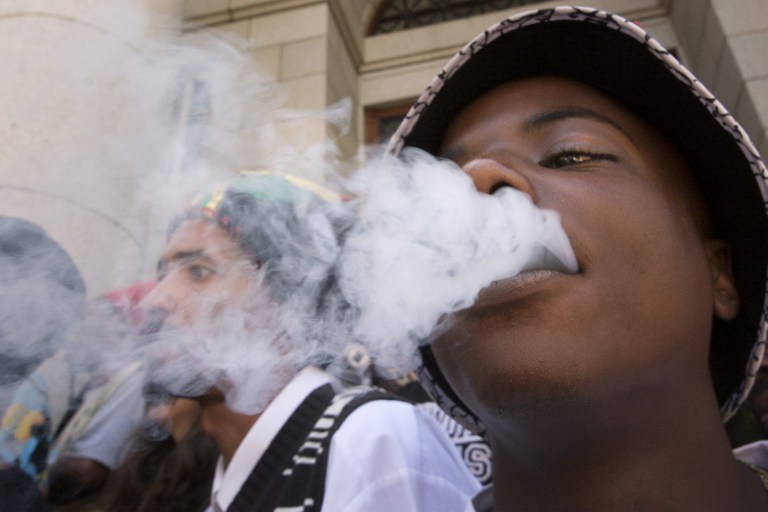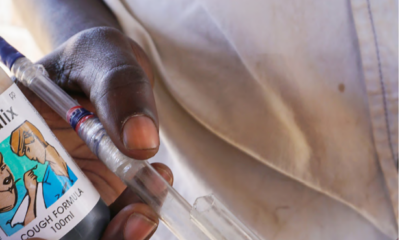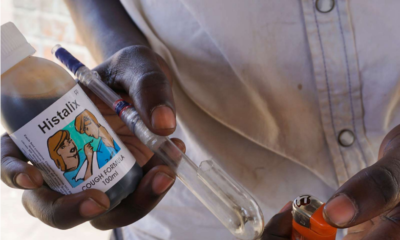ANTI-ILLICIT drugs activist Savannah Madamombe says the government might have done well by introducing new measures that will see the creation of new rehabilitation centres, but the authorities will have to partner independent organisations to ensure human rights are respected in those institutions.
NATHAN GUMA
Substance abuse has continued to escalate in the country and is now a menace in both high-density and low-density suburbs, as well as schools, including elite private institutions.
As consumption of dangerous drugs has risen, the mental health of addicts has taken a severe battering, with six out of 10 patients admitted to mental institutions suffering from drug-related issues, according to narcotics experts.
This week, cabinet approved a report with a raft of measures to control drug abuse, presented by the Inter-Ministerial Task Force on Drug and Substance Abuse led by Defence minister Oppah Muchinguri-Kashiri, which will see the creation of new rehabilitation centres.
“Cabinet agreed on the following measures to strengthen the Anti-Drug and Substance Abuse Programme: that two pillars dealing with legal and policy issues and finance and resource mobilisation will be constituted; that all idle Provincial Covid-19 isolation facilities will be converted into multi-sectoral drug rehabilitation centres,” the government announced through Tuesday’s cabinet minutes.
“That Dr Agnes Mahomva will be appointed as the National Coordinator of Inter-Ministerial Taskforce on Drugs and Substance Abuse; to urgently resume capacitation of sub-national structures including traditional leaders and religious group leadership on drug and substance abuse.”
However, Madamombe told The NewsHawks that there is a need for the government to partner independent organisations to avoid disaster complications that arise from rehabilitation centres, including the abuse of human rights.
“It is an incredible idea. We have been waiting for the government to start treating the issue of drugs as a pandemic, as it is regarded all over the world. So this is the exact reaction that we were hoping they will take, using the same measures we were using on Aids and Covid-19, dealing with it as an isolated issue. This needed reaction like this where we need to take it as an epidemic,” Madamombe said.
“But, the problem is that government needs to partner with other organisations that have been working with issues like this. Because it is not a matter of just taking young people in these large spaces, it could also be a disaster, because the reaction of young people in a space where they do not have access to drugs, it can be disastrous.”
Madamombe said while it is important to promote rehabilitation, it would also be easy to promote violation of rights if improperly done.
“There is a documentary I watched where an African country, heavily Muslim, where they would take young drug addicts by force and put them in these places (rehabilitation centres), but it almost became like a concentration camp, where they would force them to drink from some coffin and beat them up.
“That is not what I hope will happen. We hope there is going to be a place where there is peace and understanding. That is why the World Health Organisation (WHO) is telling organisation, for example at Mubatirapamwe we are doing trainings with WHO on quality rights.
“This is going to play a key role on overseeing and teaching people because this is going to play a key role in helping people we are seeking to help, because there are mental health issues and violating their rights is very easy.”
The taskforce says it has increased security measures to cut the supply of illicit drugs through Zimbabwe’s borders.
According to the Inter-Ministerial report presented in cabinet, raids and operations against drug suppliers, dealers and peddlers have seen 5 367 offenders being nabbed between 7 July and 23 September 2023.
“This represents a sharp increase on the 4 328 arrests made for the whole year of 2022. A total of 81 bases, where drug users and peddlers converge to sell and consume drugs, were destroyed during the period under review.
“Cabinet highlights that four ZRP Drugs and Narcotics Units have been established at four border posts, namely: Beitbridge; Victoria Falls; Chirundu; and Mutare. These posts at points of entry are meant to curtail the inflow of drugs.
“Inland posts have also been established at the Robert Gabriel Mugabe, Joshua Mqabuko Nkomo and Victoria Falls airports. New technologies like drones are also being used to monitor the country’s borders in addition to the traditional surveillance methods in order to reduce smuggling and trafficking of drugs.”
The taskforce also said that interventions by the Liquor Licensing Board have reduced unlicensed liquor outlets, vendors and peddlers as well as licensed outlets operating outside the agreed terms and conditions.
“These include inspections of premises, investigations against public complaints and cancellation of licences. The Medicines Control Authority of Zimbabwe (MCAZ) has cancelled seven licences for wholesalers and de-registered one.”
As previously reported by The NewsHawks, drug dealers have been penetrating all facets of society, including schools, flooding them with illicit drugs.
Disguised as muffins, ganja cakes are also being sold in schools by some children working with drug syndicates which have terrorised townships, setting up base and flooding the market with dangerous narcotics.
In Kambuzuma, parents have reported cases of drug abuse among their children who are now in the habit of skipping school to sniff the dangerous substances.
In Bindura and Guruve, in Mashonaland Central province, a dangerous beer called “Tumbwa” has ravaged lives. This has been one of the substances being consumed by young people in high-density areas like Mbare.
The brew is disguised in freezit packaging, with parents fearing the dangerous homemade whiskey will be sold in schools.
In January, the Dominican Convent in Harare, a Roman Catholic-run school, expelled eight Upper Sixth students on allegations of drug abuse.
The girls allegedly abused drugs during leadership camp in Nyanga.
Sister Kudzai Mupfure, the headmistress, informed parents in a circular that the school’s investigations showed the pervasive behaviour began at home.
“My heart aches for these girls and their parents, but my duty of care is to ensure that the school environment is as far as is practicable, safe and free from all risks.
“I pray that the girls will get the rehabilitation they need and that all parents take an active role in partnership with the school community and possessing, using or supplying a restricted substance including vaping is not acceptable. Investigations are still ongoing and we will not hesitate to weed out any more culprits to sanitise the school space,” she said is a statement.



















